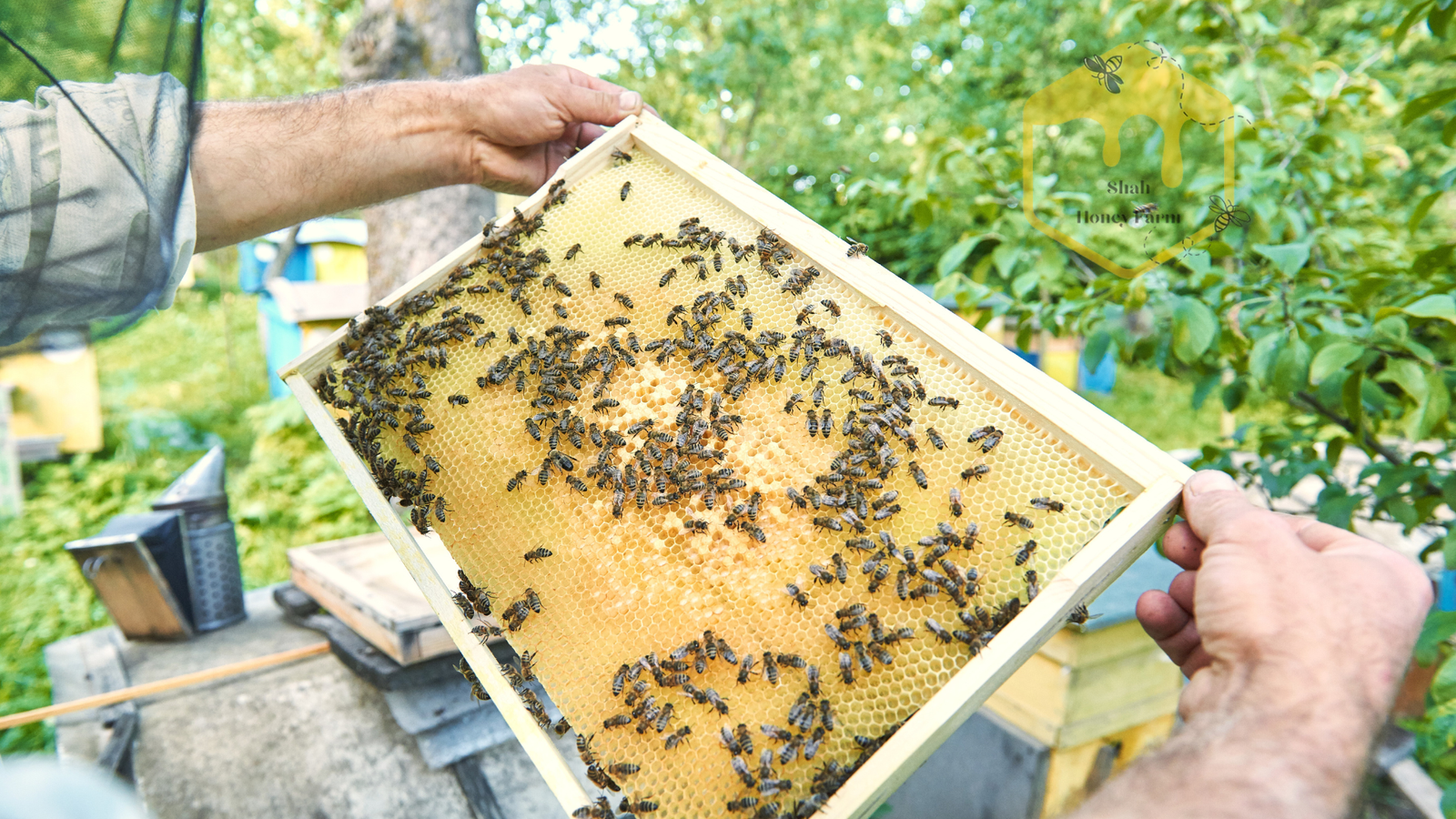Bees may look small, but their work is very big. They help plants grow and keep nature in balance. Bees give us food by helping plants produce fruits, seeds, and vegetables. Without them, life would become difficult for both humans and animals. Sadly, bee numbers are falling around the world. It is important to understand why bees matter and how we can protect them.
Bees as Pollinators
Pollination means moving pollen from one flower to another. Bees do this when they collect nectar. This simple act makes plants produce fruits and seeds. Almost three out of every four crops we eat depend on pollination. Fruits like apples, mangoes, and strawberries need bees. Vegetables like cucumbers, pumpkins, and beans also need them. Even crops like coffee and nuts depend on pollination.
If there are fewer bees, these foods will become less common. Some may even disappear. Pollination by hand or machines is possible, but it is slow and costly. Nature already gave us bees for this job. They work for free, and they do it better than machines. That is why protecting pollinators is so important.
Impact on Agriculture
Bees are partners in farming. Farmers plant crops, but bees help those crops give more yield. They make fruits bigger, tastier, and healthier. Without bees, farmers will lose a large part of their harvest.
Imagine a farm of mango trees without bees. The trees may still grow, but the fruits will be fewer and weaker. This means less food in markets and higher prices for everyone. In countries where farming supports millions of families, this can create big problems.
Some farmers even bring beehives to their fields during the growing season. This practice helps crops and also gives honey. It shows how deeply connected farming and bees are. Nature and farming cannot work smoothly without them.
Biodiversity Support
Bees help more than just farms. They also keep natural ecosystems alive. Wildflowers, grasses, and many forest plants need bees to survive. These plants are food for birds, butterflies, and animals.
When bees pollinate wild plants, they give life to many other creatures. A bird may eat berries from a plant. A rabbit may feed on grasses. A butterfly may drink nectar. All these links create balance in nature.
If bees vanish, many plants will stop growing. This will reduce food for animals. Slowly, the whole system will fall out of balance. Protecting bees means protecting all of nature.
Threats to Bee Population
Many problems are harming bees today. One big problem is habitat loss. Cities and roads are growing, while forests and fields are shrinking. Bees lose their homes and flowers to feed on.
Another problem is pesticides. Farmers use chemicals to protect crops, but these chemicals poison bees. Even small amounts can make them weak and kill their colonies.
Climate change is also making life harder for bees. Rising heat and changing rain patterns affect flowers. Sometimes flowers bloom too early or too late, so bees cannot find food.
Diseases and parasites are spreading too. Weak colonies are easy targets for infections. When bees die in large numbers, it affects both farming and nature.
Consequences of Decline
If bee numbers continue to fall, humans will face many problems. Our food supply will shrink. Fruits, vegetables, and nuts will become rare and expensive. Poor families will suffer the most because healthy food will cost more.
In nature, fewer bees mean fewer plants. With fewer plants, animals lose food and shelter. Birds, insects, and small animals will struggle to survive. This chain reaction will harm the whole ecosystem.
Even human health will suffer. Without enough natural food, diets will become weaker. We will lose important vitamins and minerals that come from bee-pollinated foods. The decline of bees is not just a problem for farmers. It is a problem for everyone.
How to Protect Bees
There are many ways we can help bees. Planting flowers in gardens and parks gives them food. Avoiding chemical sprays keeps them safe. Using natural and organic farming methods is better for both crops and pollinators.
People can also support local beekeepers. Buying natural honey helps beekeepers continue their work. When we choose pure products, we also support the health of bees. For example, trusted names like Shah Honey remind us that quality depends on strong and healthy bee colonies.
Schools and communities can also teach people about bees. Children can learn how to care for plants and avoid harming insects. Simple steps can create a big change when everyone works together.
Conclusion
Bees are small, but they are vital for nature and humans. They give us food, help farming, and keep ecosystems alive. Their decline is a warning that we must take seriously. If bees disappear, farming will suffer, nature will weaken, and humans will face shortages.
The good news is that we can act now. Planting flowers, reducing pesticides, and supporting natural farming can save bees. Choosing natural products also supports their survival. Shah Honey reminds us how closely our lives are linked with bees. When we value their work, we value our own future. By protecting bees, we are protecting food, health, and balance in nature. That is why supporting bee-friendly practices and trusted sources like Shah Honey is a step toward a better world.

